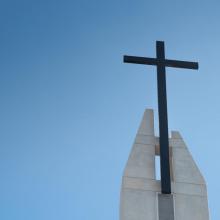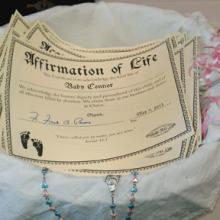philadelphia
PENNSYLVANIA CAPTURED THE attention of many of us this year via the superb crime drama Mare of Easttown on HBO, but there’s another incredible television show set in the state that we should be watching. I’m talking about Philly D.A., on PBS. An eight-episode documentary series focused on activist-attorney Larry Krasner’s unusual election to the role of Philadelphia’s district attorney and his desire to drastically reform the office, Philly D.A. is gripping and revelatory in how it explores the intricacies of his efforts. In the social justice sphere, we have big ideas of how government systems and traditions can be altered and abandoned, but most of us never get the chance to implement them. Philly D.A. depicts a staff doing just that and shows how difficult it is.
We see assistant DAs and staff members who have worked in the office for years, for several administrations, and have households and families—we see them be fired because they’re believed to be too entrenched in how things were done in the past. We see surviving loved ones of murdered citizens wonder why, after many years of the DA’s office recommending the death penalty, Krasner does not see it as a good solution. We see judges and other officials express their fear that, in the pursuit of innovation, all aspects of a functioning system are being tampered with, negatively affecting the city’s safety.
The Supreme Court ruled unanimously on Thursday that Philadelphia violated Catholic Social Services’ religious freedom by not placing children with the agency after CSS refused to place foster children with married same-sex couples.
“The refusal of Philadelphia to contract with CSS for the provision of foster care services unless CSS agrees to certify same-sex couples as foster parents violates the Free Exercise Clause of the First Amendment,” Chief Justice John Roberts wrote in a narrow decision.
“As a community, we will resist such unconstitutional action by any morally rooted means we deem necessary,” said Rev. Dr. Otis Moss III. “We are a city of grit, grind and resistance, unafraid to speak truth to power.”
A New Jersey teen pleaded guilty to attempting to provide material support to terrorists, in what media called an ISIS-inspired effort to kill Pope Francis in 2015 during a public Mass in Philadelphia, according to a statement by federal prosecutors.
Attorney General Jeff Sessions threatened on March 27 to cut off U.S. Justice Department grants to cities that fail to assist federal immigration authorities, moving the Trump administration closer to a potential clash with leaders of America's largest urban centers.
Sessions' statements were aimed at a dozens of cities and other local governments, including New York, Los Angeles, and Chicago, that have joined a growing "sanctuary" movement aimed at shielding illegal immigrants from stepped-up deportation efforts.
President Trump, long-chided for failing to address a surge in hate crimes, began his first address to Congress by invoking Black History Month, and condemning recent threats against Jewish institutions and the shooting of Indian men in Kansas City.
With his win for portraying a drug dealer with a father’s heart in the film Moonlight, Mahershala Ali became the first Muslim to take home an acting Oscar.
Ali, 43, won in the Best Supporting Actor category on Feb. 26, topping much bigger names, including Jeff Bridges, nominated for Hell or High Water, and Dev Patel, nominated for Lion.

Image via Thanate Rooprasert/Shutterstock.com
First came the mayors of New York, Chicago, and Seattle declaring their cities “sanctuaries”, and saying they will protect undocumented immigrants from President-elect Donald Trump’s plan to deport them.
Then thousands of students, professors, alumni, and others at elite universities, including Harvard, Yale, and Brown, signed petitions, asking their schools to protect undocumented students from any executive order.
Now, religious congregations, including churches and synagogues, are declaring themselves “sanctuaries” for immigrants fleeing deportation.
In the summer of 430, the great Christian writer and bishop Augustine of Hippo lay dying as barbarians besieged his North African city – basically a mop-up operation in the slow-motion fall of the Roman Empire.
Today, in the fall of the year 2016, a lot of Christians can relate.

Image via Italianvideophotoagency/Shutterstock.com
At the conclusion of the most recent synod, Pope Francis encouraged bishops assembled to continue their journey. During this ongoing journey, Pope Francis warned against “hostile inflexibility” and to allow one’s self to “be surprised by God.”
Will seeking an understanding into the differences between civil and sacramental marriage help to diffuse church tension? Can religious and civil liberties peacefully coexist?
The words and actions of Pope Francis certainly indicate a desire to explore such a path. The question then becomes: will others follow him on this journey?
The head of liturgical music for the Archdiocese of Philadelphia, who was also to play a key role orchestrating the huge outdoor Mass concluding Pope Francis’ trip to the U.S. in September, is resigning his post over long-standing differences with Archbishop Charles Chaput.
John Romeri, who has headed the archdiocesan liturgical music office for five years, said that he will resign effective June 30 because “there are simply irreconcilable differences” with Chaput over the role and style of music at Mass.
Romeri did not respond to requests for comment, and it was unclear whether he would still play a role in preparations for the papal visit.
Philadelphia Archbishop Charles Chaput says hot-button socio-sexual issues won’t be the central focus when the World Meeting of Families welcomes Pope Francis to the City of Brotherly Love next year.
Chaput told a Vatican conference on marriage and the family Nov. 19 that next year’s event comes “at a critical moment in global culture” and willaddress a broader scope of concerns.
“It will deal with a wide range of family issues where our religious faith is both needed and tested,” Chaput said.
“These are matters that affect all families, not only in the United States but on a world scale. So we want to focus next year not just on the neuralgic sexual issues that seem to dominate the American media.”
Reflecting the change in emphasis under Pope Francis that was evident at the recent Vatican Synod on the Family, the four-day event in Philadelphia will look at poverty and the family, marital intimacy, raising children, and the impact of divorce, as well as issues affecting the elderly and the disabled.
BREAKING NEWS:
There is a nonviolent uprising around immigration happening in Philadelphia and a dozen other U.S. cities. Philadelphia faith leaders announced that they will welcome immigrant families even if it is against the law. They are building a movement of "sanctuary congregations" and have dreams that the U.S. will one day be a sanctuary nation.
We join them in insisting that we must obey the laws of God over the laws of our government — and that means "welcoming the foreigner as if they were our own flesh and blood." (Exodus 22:21, Lev.19:34, etc., etc.).
Jesus says that when we welcome the stranger we welcome him. When God asks: "When I was a stranger did you welcome me?" (Mt. 25) we are not going to say: "Sorry God, Congress wouldn't let us."
We know that sometimes divine obedience can mean civil disobedience.
As St. Augustine once said: "An unjust law is no law at all."
It’s been said that our politics are often shaped by what we see out the window.
Twenty years ago, if you would've asked me if I thought police treat people fairly regardless of race, I would have confidently said, “Yes” — just like 70 percent of white folks in the recent Pew survey. In fact, 30 years ago, if you would've asked me what I wanted to be when I grew up I’d have said “a policeman.”
I grew up in a small town in Tennessee, which was still very segregated. Growing up, we knew the police officers by name. On more than one occasion, the police saved the day, and countless news stories celebrated the heroism and courage of police officers.
My mom and I used to go on walks together in a park, and I always looked forward to bumping into the officer who patrolled the park. She was tough as nails but always greeted me with an enthusiastic smile and a big bear hug. At the age of ten, she appointed me a “Junior Officer,” and she gave me a “real metal badge.” I felt like I was at the top of the world, and on my way to be officer of the year.
And then my window changed.
Now that the trial for abortion provider Kermit Gosnell has ended with a conviction, many are asking what public officials in Philadelphia plan to do with the 47 bodies from the case.
After Gosnell’s arrest in 2011, then-Archbishop Cardinal Justin Rigali asked the district attorney’s office for the bodies of the aborted fetuses. The bodies were being retained for the trial, but after it ended and Gosnell was sentenced to life in prison, his successor, Archbishop Charles Chaput, has renewed the request to bury the bodies.
Francis Maier, special assistant to Chaput, said that he doesn’t know whether or not a service would include a Catholic Mass, but he said it would be quiet and dignified.
For the next 12 days it’s all about the ground game. With most voter registration deadlines passed, the fight against voter suppression has shifted focus from registration drives to calling banks, car-pools, and calls to vote early.
Bishop Dwayne Royster is Executive Director of P.O.W.E.R. (Philadelphians Organized to Witness Empower and Rebuild), a 37-member interfaith organizing coalition in Philadelphia. Royster is also lead pastor of Living Waters United Church of Christ in Philadelphia. In a recent interview Bishop Royster explained just how vital the fight against voter suppression has been for the people of Philadelphia.
According to a study conducted by the Pew Charitable Trust’s Philadelphia Research Initiative, Philadelphia is the 6th poorest large city in America with a poverty rate that held at 25 percent in 2011. The unemployment rate is higher than the national average at 11.5 percent, and nearly half of all high school students engage in a fist fight at least once in the course of a year. Tensions are high in the City of Brotherly Love.
Nearly lost amid ongoing reports about the Vatican leaks scandal, Rome’s battle with American nuns, the American bishops’ battle for religious freedom, and the priest on trial in Philadelphia, was the news that, by the way, Pope Benedict XVI plans to visit Philadelphia.
Benedict made the announcement at the end of his visit to Milan on June 3 for the church’s triennial World Meeting of Families. The next meeting would be in Philadelphia in 2015, he said, and he planned to be there, “God willing.”
True, the trip won’t happen until 2015, and it may well not happen at all — Benedict would be 88 by then. Even if there's a new pope in 2015, the City of Brotherly Love is still almost assured of getting a papal visit — new popes like to underscore continuity, and respect the plans their predecessors had in place.
In a larger sense, the visit would be about more than promoting family life, and in many ways it's related to other Catholic issues now dominating the headlines. Here’s why.
You won't want to miss the great profile of our friend Shane Claiborne and the New Monastics in Huffington Post's Religion section. HuffPo's religion editor Paul Raushenbush tells the story of Shane and his brothers and sisters in The Simple Way spiritual community in Philly.
Raushenbush writes:
"I often say I was drafted by injustice," explains Shane Claiborne, one of the founders of The Simple Way, a Christian community located in North Philadelphia. Tall, thin, with dreadlocks and a ready smile, Shane shares with me the religious experience that changed his life.
In the late 1990s, a group of homeless families squatting in an abandoned cathedral in Philadelphia were threatened with eviction when the local diocese decided to sell the property. The homeless community hung a banner outside the cathedral that asked: "How can you worship a homeless man on Sunday and evict him on Monday?"
"The founders never intended indefinite free speech. They assumed after two weeks any protest would be wiped out by small pox.” — Stephen Colbert
On Nov. 5 folks all over the world will divest from Wall Street and its banks … in order to invest in a better world.
Ideologies alone are not enough. There came a point in the movement to abolish slavery where ideology required responsibility. As one abolitionist said, “The only way to be a good slave-owner is to refuse to be a slave-owner.” To truly be against slavery also meant that you didn’t drink sugar in your tea, because sugar was produced with slave labor.
So on November 5, my wife and I will be joining the “Move Your Money” celebration, moving our money from Bank of America to the non-profit credit union here in Philadelphia.
It is one small step away from the vicious cycle that continues to see money transfer from the increasingly poor to the increasingly rich.
It is trying to take to heart Jesus’ command to “Get the log out” of my own eye.
It is a move towards Gandhi’s call to “Be the change you want to see in the world.”
It’s one little step towards being less of a hypocrite tomorrow than I am today.














